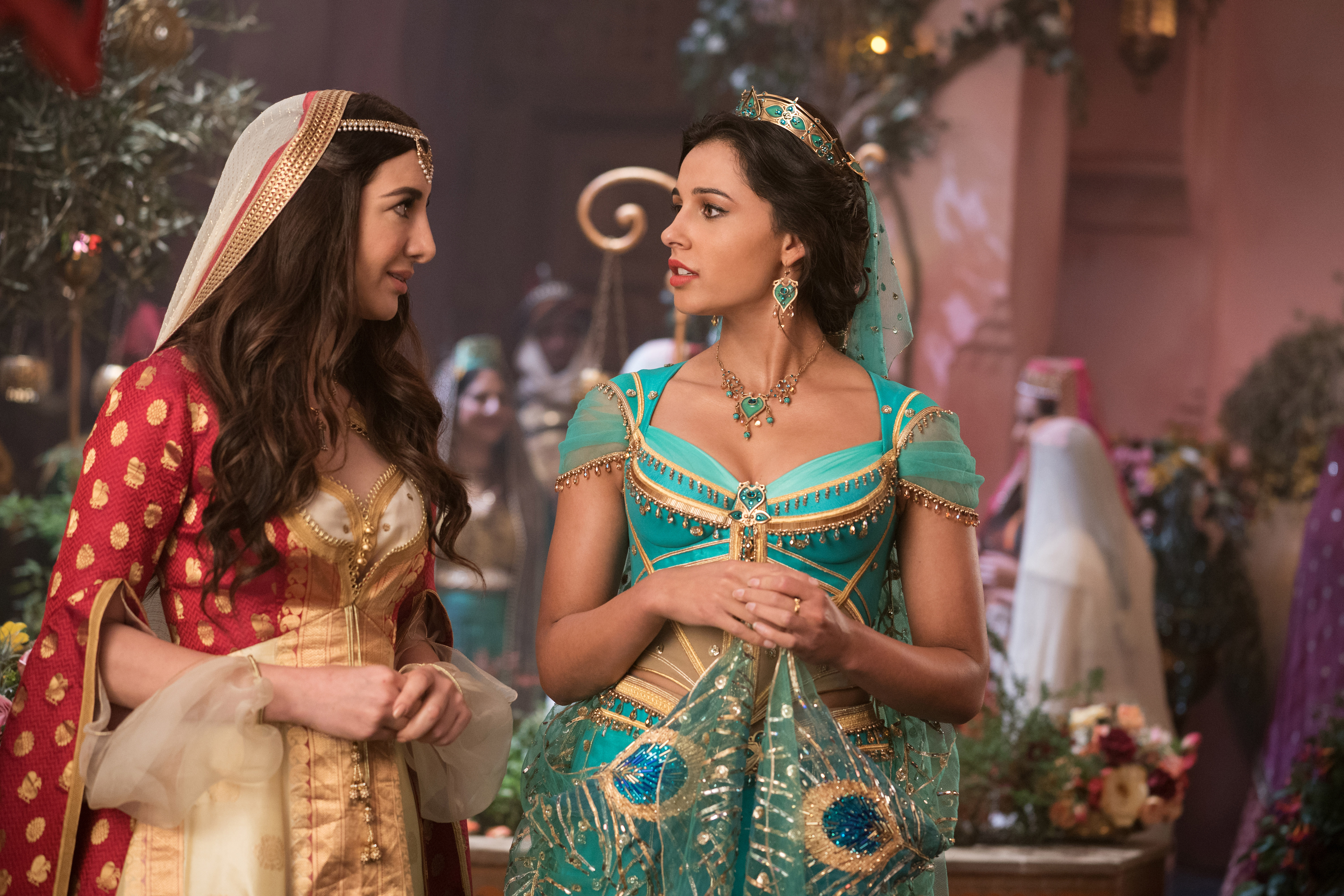

You could even still find many stage depictions of Aladdin as culturally Chinese well into the 20th century, such as in this yellowface production of a British pantomime from 1935: Aladdin confronts his captor, who’s styled as an Imperial Chinese official.
ALADIN 2019 ARCHIVE
(Artist unknown.) Getty Images from the Hulton Archive In this illustration of Aladdin, circa 1930, Aladdin and his setting are clearly Chinese. Early 19th and 20th-century versions of the story clearly show Aladdin as culturally Asian. What’s fascinating about the origins of this tale is that, even though 1001 Nights has been traditionally translated in English as Arabian Nights, the original story was set not in the Arab world, but in China.

The othering of these cultures often takes the form of romanticized depictions of these regions as mysterious or mystic fantasy lands, framed through a colonial perspective. Said was a leading figure in early postcolonial research, and in his 1978 book Orientalism, he outlined literary and narrative tropes that US and European writers used (and still use) to portray Asia and the Middle East as bizarre, regressive, and innately opaque and impossible to understand. A specific flavor of exoticism is Orientalism, an idea famously conceptualized by Edward Said. The story’s exoticism - a xenophobic view of other cultures, or people from those cultures, as being somehow strange, unfathomable, or alien - is entrenched in that framing. But as the book’s most recent translator, Yasmine Seale, noted in a 2018 interview, Diyab’s version was never recorded, and it’s unclear how much of the story came from him or Galland: “Diyab’s contribution – an oral performance recorded in a few lines in Galland’s diary – is ultimately unknowable.” Seale also added that “in many ways is a classic piece of early 18th century French literature, with its charm and its bigotries.” In other words, while he had a Syrian source, a French guy with a European colonial view of Asia brought us the original Aladdin. Diyab met with Galland in 1709 and told him several stories to include in 1001 Nights - which historians now believe most likely included Aladdin. In recent years, however, the discovery of a memoir by a Syrian named Ḥannā Diyāb cast doubt on the idea that Galland invented the tale. Galland claimed to have heard it firsthand from a Syrian storyteller, but claiming your original story came from an exotic faraway source is a common literary device. The tale of Aladdin is born from a hodgepodge of cultural influences - each with an Orientalist viewpointĪladdin had no known source before French writer Antoine Galland stuck it into his 18th-century translation of 1001 Nights. But in fact, Aladdin isn’t a traditional folktale it has a different history, and it’s one that still causing controversy today. Most people think that the story of Aladdin comes from the original 1001 Nights tales, which is a collection of traditional Middle Eastern and Asian folklore. The Council on American-Islamic Relations issued a press release earlier this week asking reviewers and critics to acknowledge that the “Aladdin myth is rooted by racism, Orientalism and Islamophobia” and to “address concerns about racial and religious stereotypes perpetuated by the Disney film.” The new film has, for the most part, managed to shirk much of its inspiration’s exoticism and cultural inaccuracies, but despite Ritchie’s clear efforts to deliver a more respectful version of Aladdin, it may not be enough to satisfy many of its detractors.
ALADIN 2019 MOVIE
Although the original movie was a critically acclaimed masterpiece, it was also dripping in Orientalism and harmful racist depictions of Arab culture. The production, helmed by Guy Ritchie, had a hefty amount of cultural baggage to overcome, and has been dogged by controversy and skepticism over its premise and execution since before filming even began.Īll the backlash isn’t entirely the 2019 film’s fault. Disney’s live-action Aladdin, a remake of its 1992 animated film, has finally arrived in theaters, and on one level, it’s something of an achievement.


 0 kommentar(er)
0 kommentar(er)
